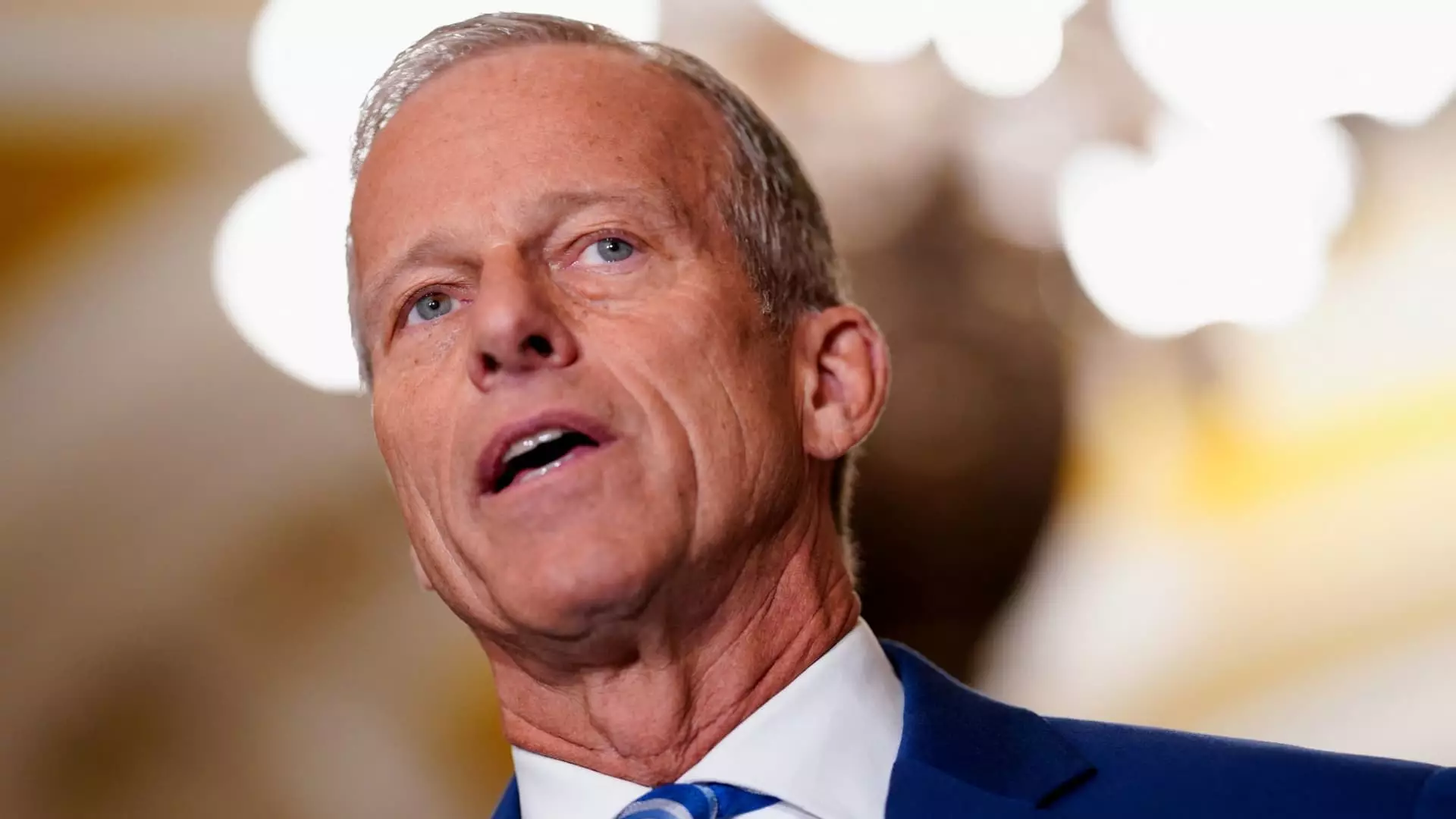The recent procedural vote in the Senate clearing the way for the final debate on President Donald Trump’s sprawling spending bill should not be mistaken for a straightforward triumph. While the 51-49 vote margin technically moves the package closer to enactment, the razor-thin margin and intense last-minute pressure reveal not just the fragility of GOP unity, but also the deep ideological fissures within the party. This victory belongs less to Trump or Senate leadership and more to the blunt realities of legislative necessity in an era defined by polarization and distrust.
The passage saw several Republicans reluctant to endorse the bill until the very last moment, forcing an exhausting, hours-long tension at the Capitol. The defection of staunch conservative holdouts like Sens. Mike Lee, Rick Scott, and Cynthia Lummus before the final tally exposes the internal battles shape-shifting around policy priorities and political survival. Senator Ron Johnson’s abrupt change of heart, abandoning his initial opposition, underscores the murky calculations underpinning such landmark votes—where conviction mingles with calculation and political expediency.
Democrats’ Tactical Opposition: Resistance as Strategy
Democratic opposition to the package was unanimous, as expected, but their tactics speak to a broader problem in contemporary Senate governance—using procedural maneuvers to stall and spotlight flawed legislation. Senate Minority Leader Chuck Schumer’s push to have the entire 940-page bill read aloud on the Senate floor reflects a strategic refusal to allow swift passage and symbolizes the frustration of minority parties facing unwieldy, expedited legislative processes.
This maneuvering, while politically sound from a Democratic perspective, plays into the increasingly theatrical nature of Capitol Hill, where policy debates too often give way to grandstanding. Rather than fostering substantive deliberation, such tactics risk underscoring legislative dysfunction, fueling cynicism among voters about the efficacy of governance at the federal level.
The Contentious Policy Core: Medicaid Cuts and Party Fractures
At the heart of the bill lie contentious policy choices, especially the significant cuts to Medicaid—a sticking point that has already alienated members of the Republican caucus. The narrow Republican majorities in both the Senate and House mean that any dissent within the party threatens the bill’s ultimate viability. This internal conflict reveals a critical failure of leadership: prioritizing a sprawling, complex bill that attempts to satisfy disparate factions without a coherent vision for governance or clear ideological grounding.
The House passage of its own version, coupled with rising Republican dissent in that chamber, foreshadows a risky reconciliation process. Leadership faces a high-stakes balancing act, where moving the bill forward risks a fracturing of the party coalition or significant policy dilution—both outcomes likely to disappoint core constituencies and frustrate moderate members seeking pragmatic governance rather than ideological purity.
The Illusion of Deadline-Driven Governance
President Trump’s insistence on a July 4 deadline for passage cultivates an illusion of disciplined legislative momentum but may actually exacerbate the bill’s weaknesses. Self-imposed deadlines pressure lawmakers into rushed decisions, often sacrificing thorough debate and amendments necessary to refine policy. The Trump administration’s framing of failure to pass the bill as a “betrayal” weaponizes party loyalty against legislative prudence, threatening to deepen divisions rather than build consensus.
This posture reflects a leadership style that prizes symbolic victories over sustainable policy solutions, risking both legislative backlash and public disillusionment. In an era where governance demands nuanced, bipartisan cooperation, leveraging deadlines as cudgels undermines the very democratic deliberation this country desperately needs.
The Bigger Picture: A Fragmented Republican Party Facing a Test
The drama surrounding this bill is symptomatic of a Republican Party grappling with competing identities: the traditional conservative establishment, the more populist Trump-led faction, and a pragmatic minority concerned about governing effectively and responsibly. The narrow successes in passing procedural hurdles mask a deeper instability that threatens future legislative achievements.
While many view the package as a “big, beautiful bill” because of its scale and ambition, its passage is a bittersweet testament to political compromise born less from consensus and more from exhaustion and fear of political fallout. It exposes the perils of majority-minority dynamics in a hyper-partisan Senate and a party struggling to reconcile ideological differences with legislative necessities.
The coming days and votes in the House will serve as critical litmus tests, not just for the bill itself, but for the Republican Party’s capacity to govern cohesively and deliver on promises without fracturing. In this context, the triumph achieved is less a glorious victory and more a reminder of how deeply fractured and fraught American political governance has become.


Leave a Reply